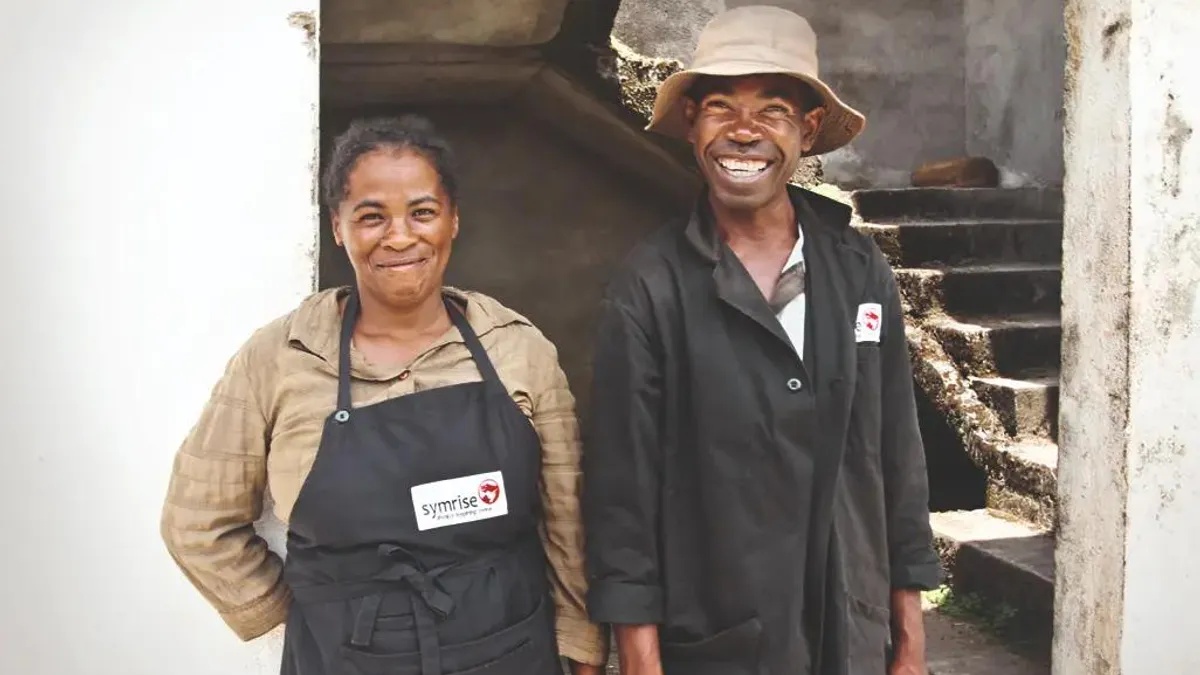Dive Brief:
- Symrise, a flavors and fragrances company, and Kellogg have met their goal of achieving 100% responsibly sourced vanilla by 2020 after launching a partnership in 2019, according to a recent press release. The two companies include sustainable and ethical farming and labor practices in their metrics for success in addition to maintaining various environmental certifications from the Rainforest Alliance and other third-party organizations.
- Symrise's practice of sourcing directly from, and implementing in-person training and monitoring for, vanilla farmers and cooperatives improves traceability, "brings certainty and creates shared value for farmers as well as ensuring sustainability of supply," Symrise's Global Competence Director for Vanilla Yannick Leen said in a statement.
- Through their partnership, the companies provide training on sustainable farming techniques and ethical labor practices for over 1,000 Malagasy smallholder vanilla farmers, according to the release. Symrise works with over 7,000 farmers in 84 villages in total across Madagascar, according to its website.
Dive Insight:
Over 80% of the world's vanilla is grown in Madagascar, predominantly on small individual or family farms. As consumer demand for all-natural, responsibly sourced ingredients grows, so has demand for real vanilla and reliable information on how and by whom it was grown.
In addition, the pandemic has caused more people to cook at home, leading to skyrocketing food and beverage sales, including for Kellogg, according to its recent earnings report. McCormick, for example, reported a 120% increase in vanilla extract sales compared to last year, partially as a result of more consumers turning to baking.
Outside of its partnership with Symrise on vanilla, Kellogg currently responsibly sources 100% of its sugar beets, 99% of its corn, 95% of its rice and fruits, 82% of its palm oil and nearly 76% of its cocoa, with the aim of getting to 100% across all the categories by the end of this year, according to its current sourcing goals.
The company is currently involved in regenerative and sustainable agriculture projects globally, and seeks to support 1 million farmers and workers — focusing on improving agricultural biodiversity, water access, cost-sharing with farmers, training and technical assistance — by the end of 2030.
For Symrise to achieve its sustainability and ethics goals, which include 100% sustainable procurement of raw materials by 2050, "we rely on transparency and traceability to achieve full control along the value chain," Bernhard Kott, chief sustainability officer at Symrise said in a statement. The company's suppliers must adhere to a code of conduct, which includes standards for human rights, health and environmental sustainability, he said.
However, responsible vanilla sourcing can fall prey to similar challenges that make procurement standards for other ingredients like cocoa or palm oil difficult to verify. There are risks of child or forced labor in the country, and increasing demand has led some farmers to overplant or turn to other socially or environmentally detrimental practices to increase output.
"Unlike in many developed countries, we can’t yet collect and analyze data with completely automated systems," Jean Victor Raharijaona, a sustainable development coordinator at Symrise, said in a statement on the company's website. "The power supply [in Madagascar] is unreliable, and many of the farmers we work with live in remote areas and are not able to read or write."
To get around this, Symrise maintains a year-round presence working with farmers by employing local "controllers" who "audit the compliance of each farm with SAN (Sustainable Agriculture Network) criteria as well as proposing annual improvement plans and supporting farmers with regular training," Rhaharijaona said. "In this way, we’re able to track our supply chain and ensure that we’re really helping the farmers that we work with."














